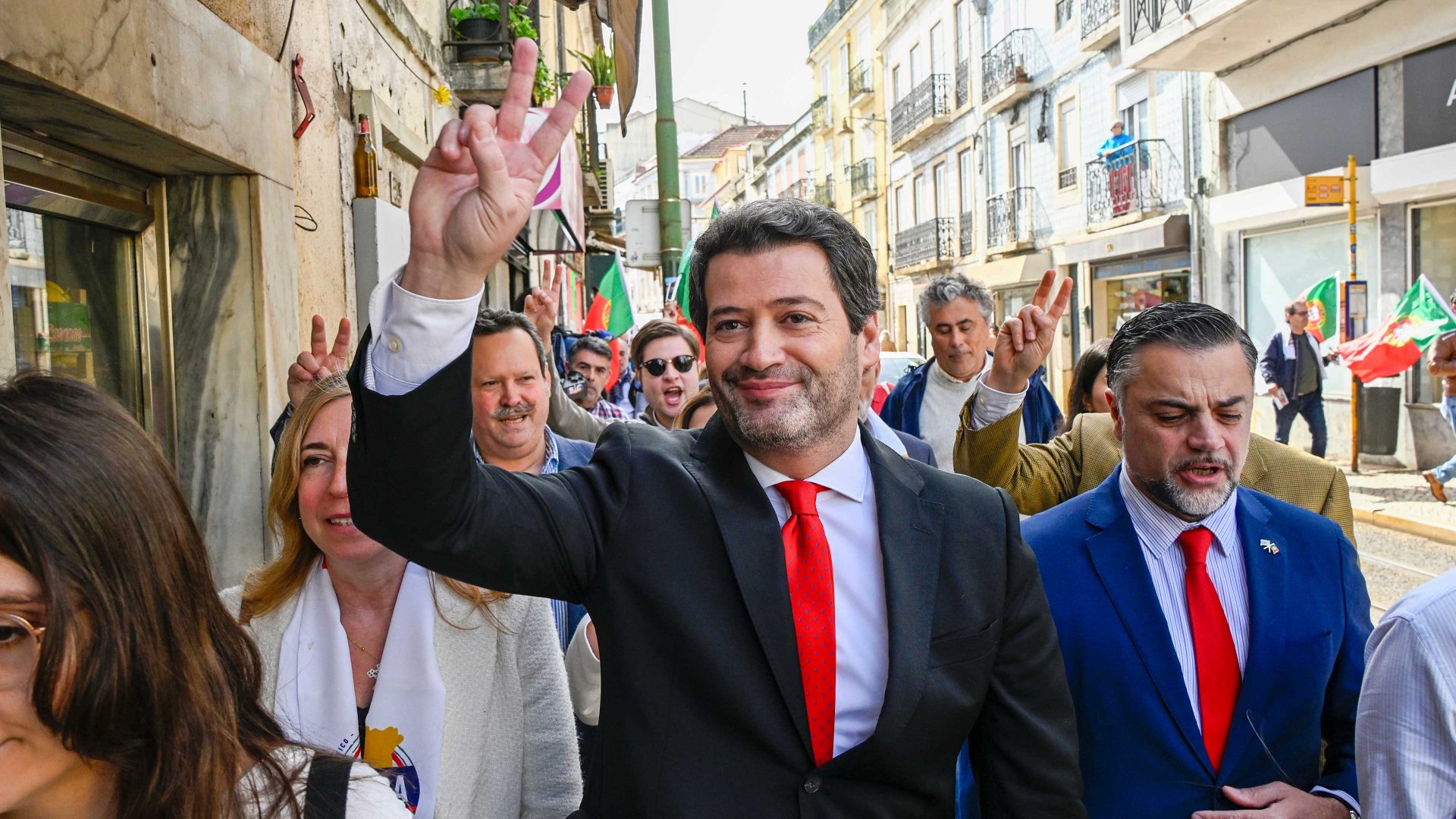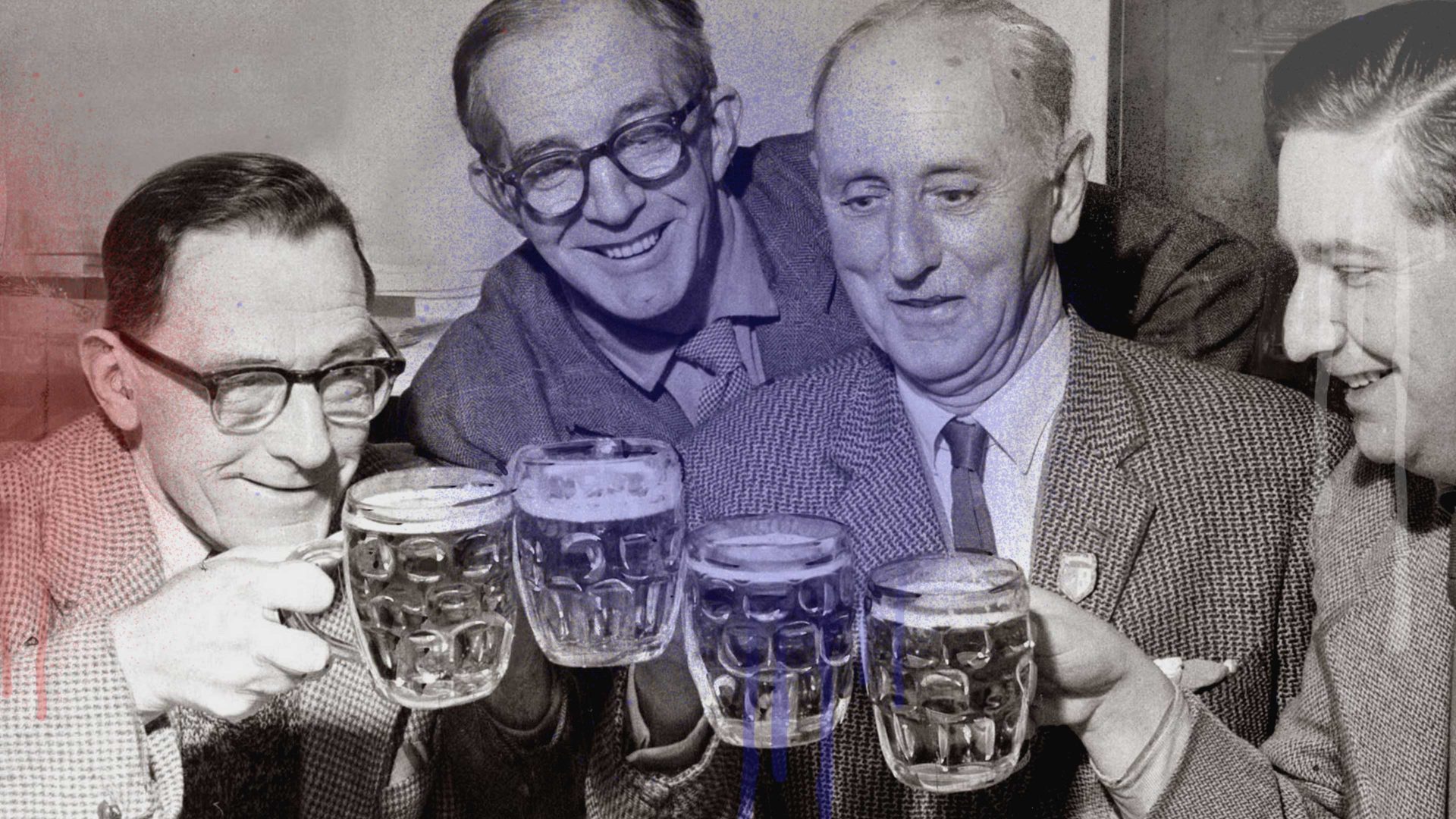It was an exultant André Ventura who spoke to flag-waving supporters after Sunday’s elections, hailing the end of the two-party domination of Portuguese politics in recent decades, as the seat tally of his far-right Chega party (it means “Enough”) quadrupled to 48 out of 230. The party won 18% of the vote, putting it 12 points behind the election-winning Democratic Alliance (AD).
After a campaign in which he barely hid his frustration at being marginalised by other leaders – particularly Luís Montenegro of the right-of-centre AD, which ended up securing the narrowest of victories over the governing Socialists – Ventura hit back at a media that he said had made Chega “the most persecuted party in the history of Portugal”.
Since it is clear that AD and Chega together have a majority of votes, he said, that means the electorate want these two right-of-centre forces to “build a government”. He did not mention the smaller Liberal Initiative, which has promised to back the AD only if Chega is not involved, but whose support on its own would not be enough for a majority in parliament. “We’ve heard the country; tomorrow we have to hear each other,” Ventura said.
There certainly will be hearings. Portugal’s president, Marcelo Rebelo de Sousa, is constitutionally bound to call in parties with seats in the new parliament, one by one, for talks on how to proceed.
Montenegro, the victorious leader of the AD group, has repeatedly ruled out doing a deal with Chega. It was a stance he reiterated on election night, even as party workers yelled enthusiastically at the prospect of his becoming prime minister.
The president himself is seen as one of the big losers. Though a former leader of Montenegro’s own Social Democratic Party (PSD), the main constituent of the AD, he is supposed to be above the fray. But he is clearly dismayed by the rise of the far right.
In a speech earlier this week to mark the 50th anniversary of the 25 April Revolution – the military coup that brought down the decades-long Salazar dictatorship – de Sousa warned against yielding to the temptation of “nostalgia” and believing that things were better in Portugal before democracy was established.
And when, two days before the election, the Expresso newspaper reported that unnamed sources in the president’s office would not accept a minority government propped up by the far right, a clearly irritated Ventura said this was “not very democratic.”
On Sunday night, noting that the president had never denied the report, he twisted the knife: “Two days before the elections, he said that he didn’t want Chega in the government and Chega quadrupled its result. I think he will understand what the Portuguese wanted to tell him, otherwise he doesn’t understand anything about democracy.”
Chega won seats in all but one of Portugal’s 20 districts, including the capital, but its vote was strongest in the south: across the Alentejo region (once the stronghold of the century-old Communist Party, whose overall vote this time withered to 3%). Chega also did well in Faro district – the Algarve – where for the first time Chega took the most votes.
With elections for the European Parliament scheduled for June, there is the question of what this latest victory means for the far right in Portugal.
Ventura has little hesitation in ditching policies or drastically changing direction if it helps. Where a past Chega programme called for the state to withdraw almost entirely from sectors such as health and education, reducing it to a regulatory role, the party now only says it wants a greater role for the private sector. It also wants a pay rise for police and some other groups, along with tighter immigration controls and an end to subsidies for groups promoting gender equality.
The Portuguese are generally Europhile, and so Chega’s campaign did not have the anti-European flavour that characterises far-right politics in some countries. But it is a measure of the party’s anti-liberal, extreme character that the leader of Spain’s Vox party, Santiago Abascal, appeared with Ventura on the campaign trail.
Alison Roberts is a freelance journalist based in Lisbon



